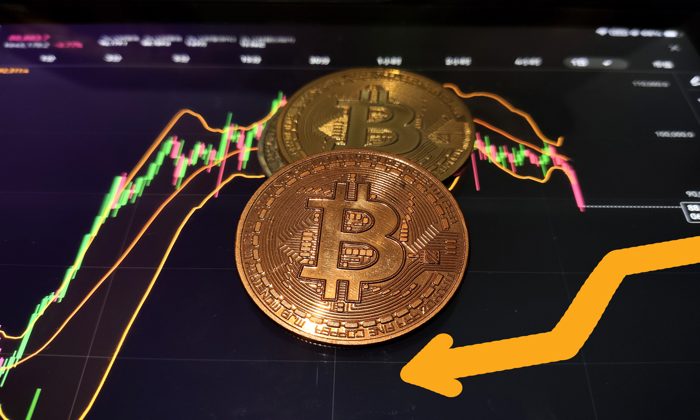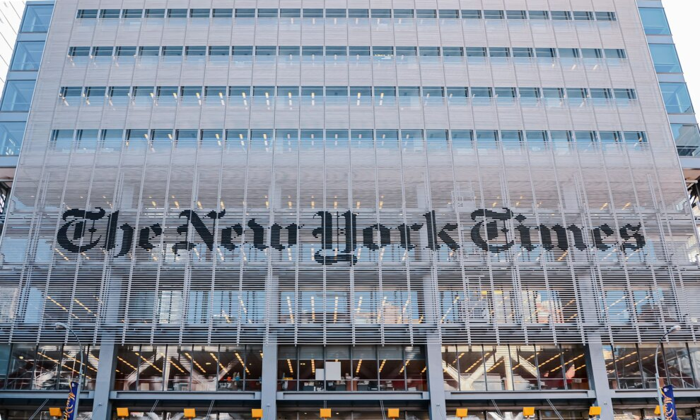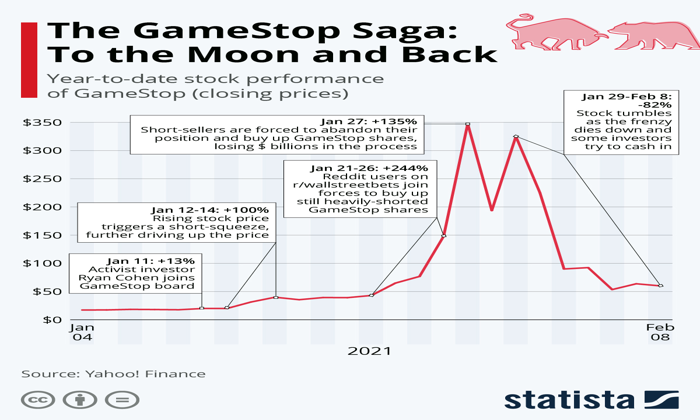The recent Bitcoin SV lawsuit has captured the attention of the cryptocurrency community as BSV investors take their grievances to the UK Court of Appeal. These disgruntled investors allege that Binance’s controversial delisting of BSV in April 2019 inflicted significant financial harm on their holdings, generating waves of concern regarding the stability of this cryptocurrency. The lawsuit, which has broad implications for the cryptocurrency ecosystem, revolves around claims of a “forgone growth effect,” arguing that Binance’s actions stunted BSV’s potential to become a top-tier currency. With potential damages reaching over $13 billion based on these claims, the stakes are unusually high for both investors and the exchange itself. In addition to the implications of this class action lawsuit, the case also intersects with the infamous assertion of Craig Wright claiming to be Satoshi Nakamoto, further complicating the narrative surrounding Bitcoin SV’s market position and investor confidence.
In the evolving landscape of digital currencies, the ongoing litigation regarding BSV reflects the broader issues facing investors in the cryptocurrency market. This legal battle against major exchanges like Binance pivots primarily on allegations surrounding the delisting of BSV, which has been linked to a drastic drop in investor value. Moreover, the case hinges on the concept known as the ‘forgone growth effect,’ which asserts that BSV’s potential growth was unjustly hindered, fostering speculation around the potential for significant compensation. As more investors unite under the cryptocurrency class action, the implications for the accountability of cryptocurrency exchanges become increasingly pertinent. Additionally, the backdrop of Craig Wright’s controversial role only adds layers of complexity to an already intricate debate on the validity and future of Bitcoin SV.
Impact of Binance Delisting on Bitcoin SV Holdings
The delisting of Bitcoin SV (BSV) from Binance in April 2019 has led to considerable financial turmoil for investors. Following this event, there has been a significant drop in BSV’s value, sparking a class action lawsuit which highlights the ramifications for thousands of investors. The legal representatives, aiming to reinstate their claims, argue that the drastic drop in value could have been avoided had BSV remained listed on readily accessible trading platforms. The implications of Binance’s decision are profound, as they now face potential damages exceeding $13 billion, a figure that reflects the belief that BSV could have attained Bitcoin’s value had the delisting not occurred.
Moreover, the ongoing debate regarding the ‘forgone growth effect’ poses critical questions about the future of cryptocurrencies and their market stability. The Competition Appeal Tribunal’s dismissal of part of the claim initially threw a wrench in the gears for BSV claims, indicating that there may be limitations on the compensation available to affected investors. Questions linger on how significant exchanges like Binance should handle delistings and the responsibility they bear to their user base, particularly in volatile markets, where investor confidence can dramatically sway prices.
The Legal Landscape for Cryptocurrency Class Actions
The lawsuit filed by BSV investors against Binance and other exchanges represents a pivotal moment in the intersection of law and cryptocurrency. The uniqueness of this case, being the first collective action of its kind in the UK involving cryptocurrencies, raises intricate questions concerning competition and investor rights. Legal professionals assert the case illustrates the burgeoning complexity of the cryptocurrency ecosystem, especially as more investors seek recourse through legal channels in response to unfavorable market actions by exchanges. As such, the current landscape is fraught with legal nuance, impacting how potential claims against cryptocurrency exchanges could evolve.
Behind these legal moves is a narrative of investor protection in the face of rapid market fluctuations and major corporate decisions. Many are anticipating whether this case will set a precedent, leading to increased regulatory scrutiny on cryptocurrency exchanges. The motivations of BSV investors—fueled by the belief that exchanges like Binance might have colluded in their decision to delist BSV—underscore a growing anxiety about the fairness and transparency of trading practices in this new financial frontier.
Craig Wright and the Controversy of Satoshi Nakamoto
The ongoing litigation involving Bitcoin SV is closely tied to the controversies surrounding Craig Wright, who claimed to be Satoshi Nakamoto, the enigmatic creator of Bitcoin. The court’s determination that Wright is not, in fact, the pseudonymous creator has played a crucial role in influencing the perception of BSV in the market. Many investors believe that Wright’s fraudulent claims and the implications they carry have adversely affected the legitimacy of BSV, further complicating the narrative around its potential for recovery post-delist.
Wright’s story is potent and serves as a cautionary tale about the dangers of misinformation and its potential to harm investor sentiment and market performance. The legal battles involving Wright have not only tarnished his credibility but have also cast a long shadow on BSV’s viability as a serious competitor in the cryptocurrency landscape. As ongoing legal challenges unfold, the relationship between BSV investors and Wright remains fraught with emotions, and the outcome of these interactions could heavily influence the market perceptions of Bitcoin SV moving forward.
Market Mitigation Rule and Its Application to BSV Investors
At the heart of the BSV investors’ argument lies the market mitigation rule, a legal doctrine that suggests stakeholders should act to reduce their losses when faced with adverse conditions. This rule has become a focal point in the ongoing case, as Binance contends that BSV holders had ample opportunity to mitigate their losses by transitioning to other cryptocurrencies. However, BSV investors assert that the unique circumstances surrounding their holdings precluded them from meaningfully mitigating their losses.
The tribunal’s acknowledgment of this rule raises challenging questions: how aware were BSV investors of their changing situation, and how effective could a market transition have been? Legal representatives of BSV investors argue that due to the specific characteristics of Bitcoin SV and the broader market context at the time of delisting, there should be exceptions to the application of the mitigation rule in this instance, indicating a deeper exploration of accountability and protection in the volatile world of cryptocurrencies.
The Future of Bitcoin SV Amid Legal Challenges
As the lawsuit against Binance progresses, the future of Bitcoin SV hangs in the balance. The ongoing struggles indicate a need for financial innovation and support within the cryptocurrency realm. Will the BSV investor base come together to redefine the narrative around volatility and market manipulation? With each legal decision, the very fabric of investor trust in cryptocurrency exchanges and their practices is tested. The implications of this case stretch beyond BSV alone, as they may affect regulatory perspectives on market operations as a whole.
The situation underscores the essential need for regulatory frameworks tailored for cryptocurrencies, which may soon become essential as stakeholders seek clarity and protection amid rapid market shifts. Investors may find strength in collective action, potentially paving the way for more robust legal frameworks and protections across the industry. As the legal outcomes evolve, they will likely serve as critical benchmarks for future legal and market interactions involving cryptocurrencies.
BSV Investor Claims and the Broader Cryptocurrency Market
The claims made by BSV investors following Binance’s delisting are reflective of broader investor concerns in the cryptocurrency market, particularly about asset security and exchange practices. This lawsuit reflects a growing trend where investors are becoming more vigilant and engaged regarding the activities of exchanges that significantly impact their investments. The core of these claims resonates with the fear that major decisions made by exchanges could jeopardize individual investors’ financial wellbeing, thereby amplifying calls for increased transparency and accountability in the industry.
The outcome of these claims may encourage other investors in similar situations to seek recourse for losses incurred due to exchange decisions, setting the stage for more class actions. The ripple effects of this legal battle could inspire movements towards empowering investors, leading to potentially significant changes in how cryptocurrency exchanges operate, thereby enhancing investor protections across the market. As this case unfolds, it illustrates a critical moment of reckoning for the industry, as veteran investors and newcomers alike assess their roles in shaping its future.
The Role of Legal Experts in Cryptocurrency Disputes
As the cryptocurrency landscape designed around decentralized principles continues to evolve, the involvement of legal experts is increasingly indispensable. Legal professionals are not only navigating the complexities of instances like the BSV lawsuit against Binance but are also impacting how future cases may be handled. This emerging field of cryptocurrency law reflects the necessity for a robust understanding of both legal frameworks and technological nuances. In cases involving delistings and investor rights, experienced legal counsel becomes crucial in ensuring a fair adjudication process.
The insights provided by experts are vital for deciphering the intricate legal, technical, and ethical components that accompany cryptocurrency litigation. They offer necessary guidance for investors who may otherwise find themselves overwhelmed by the rapid pace of change in the sector. As more legal scrutiny surrounds cryptocurrency exchanges, the role of legal experts will likely expand, paving the way for new strategies and insights that protect consumers while fostering a more accountable environment in the digital currency space.
Regulatory Implications of the BSV Case on Global Exchanges
The proceedings surrounding the BSV class action against Binance and other notable exchanges could have far-reaching implications for cryptocurrency regulation worldwide. Regulatory bodies are monitoring these developments closely, as they may signal a pivotal moment for how cryptocurrencies and their trading platforms are governed. The potential financial penalties hanging over Binance could serve as a wake-up call for other exchanges, prompting them to reevaluate their risk management strategies and compliance with evolving regulations.
If the court ultimately favors BSV investors, this could set a precedent that compels regulatory agencies across the globe to scrutinize cryptocurrency exchanges more stringently. Such a shift could have substantial repercussions, potentially establishing guidelines that prioritize investor protection and mandate transparent trading practices, thereby reshaping the dynamics of the cryptocurrency market on an international scale. The outcome of these deliberations may redefine how exchanges operate within the future regulatory landscape, ultimately impacting investors and market operations.
Investor Awareness and Education Following Delistings
The turmoil faced by BSV investors highlights a critical gap in investor awareness, particularly regarding the risks associated with cryptocurrency delistings. Following the events surrounding Binance’s decision to delist BSV, many investors have expressed feelings of confusion and betrayal, bringing to light the need for heightened educational resources. Increasing awareness about potential risks, as well as critical market indicators, can empower investors and provide them with the knowledge necessary to navigate such dilemmas effectively.
As the cryptocurrency market evolves, integrating educational programs focusing on market behaviors and exchange practices will be essential for supporting investor resilience. Future initiatives might include seminars, webinars, and improved online resources tailored to explain complex concepts, helping investors make informed decisions. By fostering a well-informed investor base, the cryptocurrency community can work towards creating a more stable environment where individuals feel confident about their investments amidst potential market volatility.
Frequently Asked Questions
What is the current status of the Bitcoin SV lawsuit against Binance?
The Bitcoin SV lawsuit against Binance is ongoing, with BSV investors appealing to the UK Court of Appeal to reinstate their claim regarding the damages caused by Binance’s delisting of BSV in April 2019. The investors allege that the delisting led to significant losses and a ‘forgone growth effect’ for BSV.
How did Binance’s delisting of Bitcoin SV impact investors?
The delisting of Bitcoin SV by Binance is claimed by investors to have caused permanent ongoing losses in the value of their holdings. Since the delisting, BSV has seen a 22% decline, exacerbated by the lack of trading options and potential growth that could have been realized had BSV remained listed.
What are the implications of the lawsuit on BSV investors?
The implications of the Bitcoin SV lawsuit on investors could be significant, especially if the Court of Appeal rules in favor of the investors. The lawsuit could potentially result in a financial penalty exceeding $13 billion against Binance, depending on the assessment of BSV’s value in relation to Bitcoin’s market performance.
How does the ‘market mitigation rule’ affect the Bitcoin SV lawsuit?
The ‘market mitigation rule’ suggests that investors were likely aware of the Binance delisting and had opportunities to trade BSV for other cryptocurrencies. However, BSV investors’ lawyers argue that this rule should not apply in their case, as they believe investors could not adequately mitigate their losses through trading options.
What role did Craig Wright play in the controversy surrounding Bitcoin SV?
Craig Wright, who has claimed to be Satoshi Nakamoto, was found by the English High Court not to be the pseudonymous creator of Bitcoin. His involvement has led to credibility issues for Bitcoin SV, impacting its market perception and contributing to the delisting decisions by exchanges like Binance.
What is the significance of the class action concerning Bitcoin SV?
The Bitcoin SV class action is notable as it is the UK’s first collective case addressing cryptocurrency and competition. It involves multiple exchanges, including Binance, and seeks restitution for approximately 243,000 UK-based BSV holders who faced losses following the delisting of BSV.
How might the outcome of the Bitcoin SV lawsuit affect the future of cryptocurrency exchanges?
The outcome of the Bitcoin SV lawsuit could set a precedent for how cryptocurrency exchanges manage their listings and investor relations. A ruling in favor of the investors may lead to stricter regulations and greater responsibility for exchanges in their decision-making processes regarding asset listings.
What challenges do Bitcoin SV investors face in the ongoing lawsuit?
BSV investors face several challenges in their lawsuit against Binance, including the complexity of proving damages related to the delisting, the applicability of the market mitigation rule, and the need to establish a clear link between the delisting and financial losses incurred by investors.
| Key Point | Details |
|---|---|
| Lawsuit Overview | BSV investors appeal to reinstate their claim against Binance for delisting BSV in April 2019. |
| Dismissal by Competition Appeal Tribunal | In July 2024, a claim alleging a ‘forgone growth effect’ from delisting was dismissed. |
| Potential Financial Penalty | The lawsuit could lead to penalties against Binance exceeding $13 billion. |
| Loss of Chance Argument | BSV’s legal team argues for reevaluation of the ‘loss of chance’ claim during trial. |
| Response from Binance | Binance claims BSV was a marketable asset and suggests that investors could have traded it. |
| Class Action Nature | The lawsuit includes other exchanges that delisted BSV along with Binance. |
| Legal Complexity | The case is noted to be ‘very novel’ with significant legal uncertainties involved. |
Summary
The Bitcoin SV lawsuit represents a pivotal moment in the cryptocurrency landscape as investors seek justice for significant financial losses attributed to Binance’s 2019 delisting. This case explores complex themes of market dynamics and investor protections within the digital asset space, setting potential precedents for future litigation involving cryptocurrencies. With an estimated financial exposure exceeding $13 billion at stake, the outcome of this lawsuit may redefine how cryptocurrency exchanges operate and the liabilities they may face when delisting assets.
The Bitcoin SV lawsuit has emerged at the forefront of cryptocurrency legal battles, as a group of BSV investors seeks justice in the UK Court of Appeal. This crucial case highlights the ramifications of Binance delisting BSV in April 2019, a move that the investors argue has significantly impaired the value of their holdings, potentially sparking a much larger dispute over cryptocurrency class action claims. Legal representatives assert that this delisting not only triggered a “forgone growth effect” but also underscores the damaging consequences felt by the BSV market. With stakes estimated to exceed $13 billion, the outcome could set a precedent in how exchanges handle digital assets amid ongoing debates around ownership and authenticity, especially as Craig Wright’s claims to be Satoshi Nakamoto have been challenged. As the trial unfolds, the implications of this legal wrangling will reverberate throughout the cryptocurrency community, raising questions not just for BSV but for the regulatory environment of digital currencies as a whole.
In the realm of cryptocurrency litigation, the ongoing case surrounding Bitcoin SV and its delisting from major exchanges marks a significant chapter for digital asset investors. This contentious lawsuit has sparked discussions about the accountability of platforms like Binance, particularly regarding claims made by BSV investors concerning substantial financial losses. Central to this dispute are allegations that the removal of BSV has hindered its growth potential and that coordinated actions among exchanges to delist BSV may constitute a violation of investor rights. As the legal proceedings take shape, they reveal the complexities inherent in protecting cryptocurrency holders, especially in light of controversial figures like Craig Wright, whose identity as Satoshi Nakamoto has been a focal point of contention. This situation not only highlights the urgent need for clearer regulatory frameworks but also sheds light on the fundamental challenges investors face in safeguarding their interests in an evolving market.















